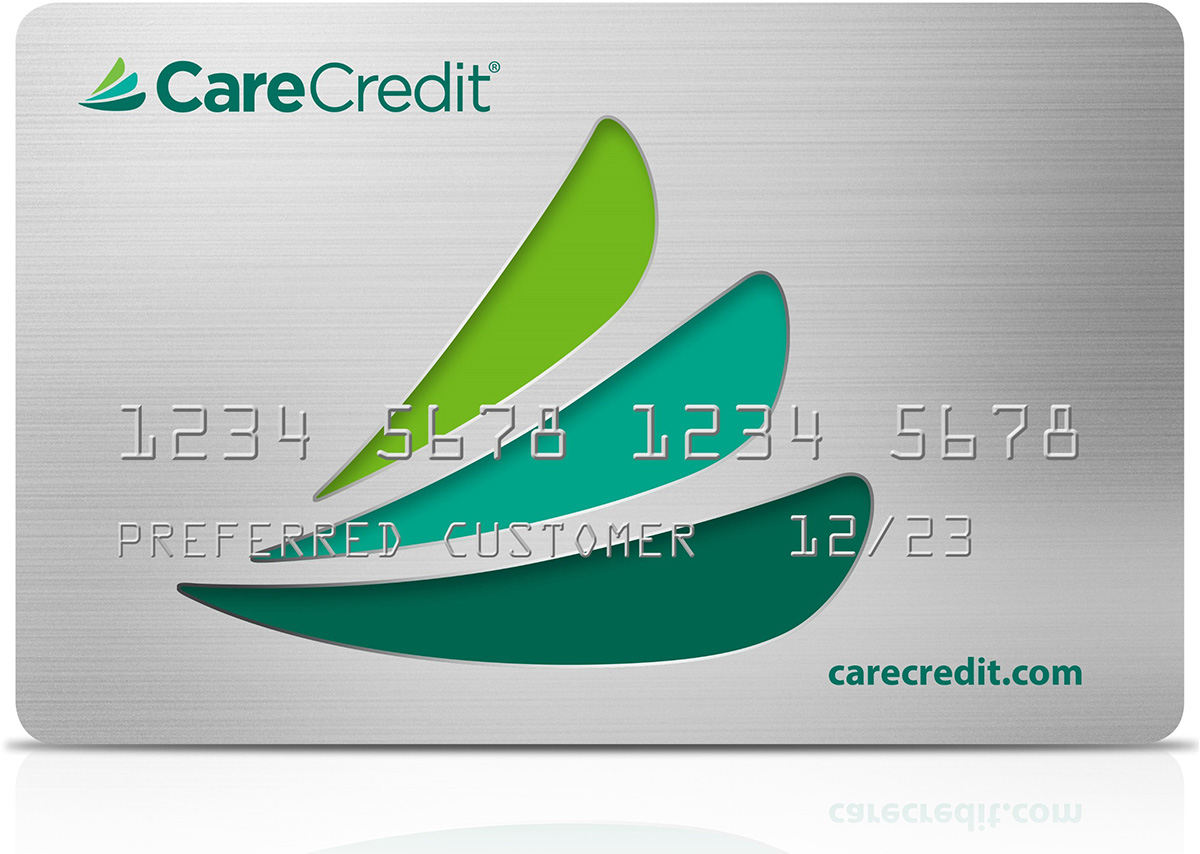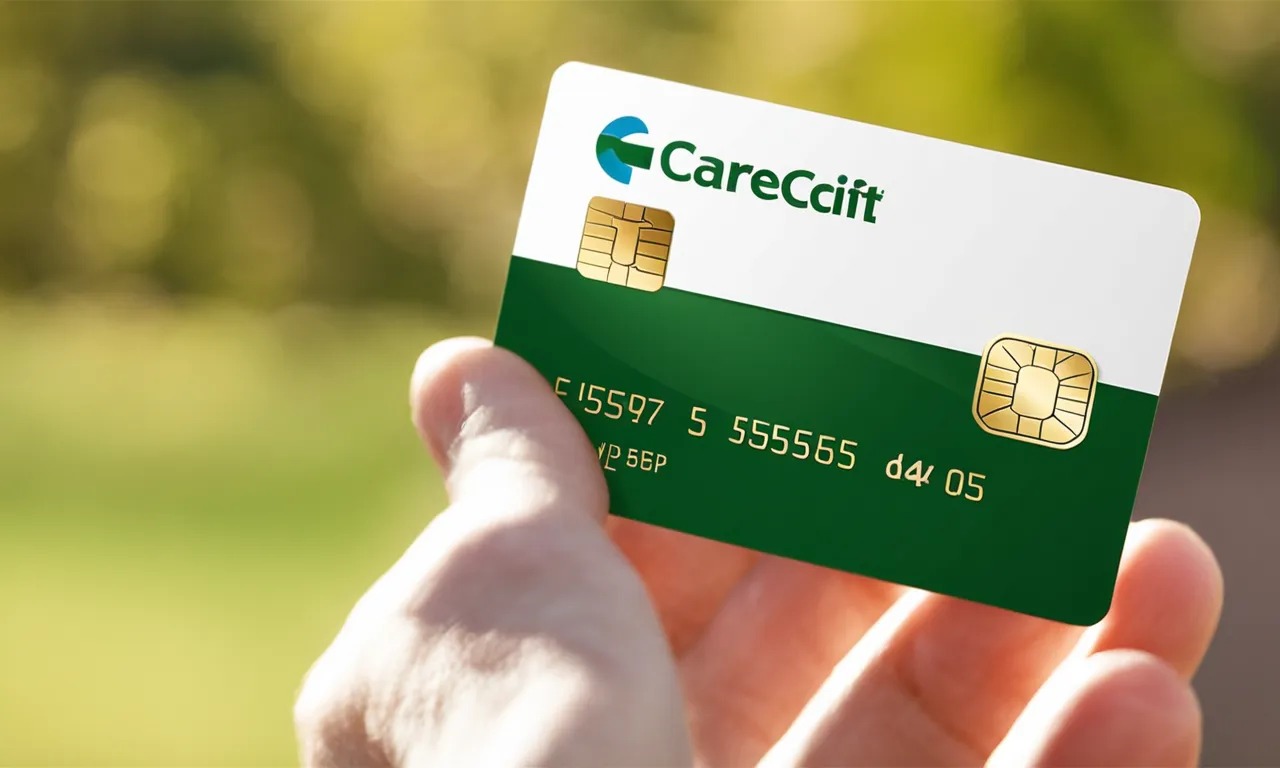

Finance
What Is Care Credit For Dental
Modified: February 21, 2024
Discover how Care Credit can help you finance your dental treatments and achieve the smile you've always wanted.
(Many of the links in this article redirect to a specific reviewed product. Your purchase of these products through affiliate links helps to generate commission for LiveWell, at no extra cost. Learn more)
Table of Contents
- Introduction
- Definition of Care Credit
- Purpose of Care Credit for Dental
- How Care Credit Works
- Application Process for Care Credit
- Benefits of Care Credit for Dental
- Eligibility Criteria for Care Credit
- Pros and Cons of Care Credit for Dental
- Frequently Asked Questions about Care Credit for Dental
- Conclusion
Introduction
Welcome to the world of dental care financing! In today’s world, dental procedures can often come with a hefty price tag, making it difficult for individuals to afford the necessary treatments. However, there is a solution that can help make dental care more accessible and affordable: Care Credit for Dental.
Care Credit is a specialized financing program designed to help individuals cover the costs of dental treatments and procedures. Whether you need a routine cleaning, a root canal, orthodontic work, or even cosmetic dentistry, Care Credit can help you manage the financial aspect of your dental care.
With Care Credit, you can receive the necessary dental treatment without having to worry about upfront costs or high interest rates. It offers a flexible and convenient way to pay for dental care, spreading the cost over time and allowing you to receive the treatment you need when you need it.
Care Credit works similar to a credit card, but it is dedicated solely to healthcare expenses, including dental care. It allows you to finance your dental treatments and pay them off in manageable monthly installments. This financing option is widely accepted by dental professionals, making it easier for you to find a provider who accepts Care Credit for your dental needs.
In this comprehensive guide, we will delve into the details of Care Credit for dental. We will explore how it works, what the application process entails, the benefits it offers, and the eligibility criteria. We will also examine the pros and cons of using Care Credit for dental and answer some frequently asked questions to provide you with a complete understanding of this financing option.
So, if you are looking for a way to make dental care more affordable, keep reading to discover how Care Credit can help you achieve that goal.
Definition of Care Credit
Care Credit is a healthcare financing program that allows individuals to cover the costs of medical and dental expenses. It is a credit card specifically designed to help people manage out-of-pocket healthcare expenses that may not be fully covered by insurance.
Created in 1987, Care Credit is now one of the leading healthcare financing options in the United States. It partners with a network of healthcare providers, including dentists, orthodontists, veterinarians, optometrists, and more, to offer patients a convenient way to pay for their healthcare needs.
Unlike traditional credit cards, Care Credit offers special financing options, such as promotional interest rates and extended payment plans, to make healthcare services more affordable for individuals and families. These financing options can be particularly beneficial for dental procedures, which can often be expensive and require prompt payment.
It’s important to note that Care Credit is not an insurance plan. Instead, it serves as a financing tool that helps individuals manage the cost of their healthcare expenses by providing them with a dedicated line of credit. This line of credit can be used exclusively for healthcare-related expenses, including dental treatments.
By offering flexible payment plans and competitive interest rates, Care Credit aims to remove financial barriers to healthcare access, allowing patients to receive the care they need without delay. It provides individuals with the ability to budget and plan for their healthcare expenses, making it easier to afford necessary treatments.
Next, we will explore the purpose of Care Credit specifically for dental care and how it can benefit both patients and dental professionals.
Purpose of Care Credit for Dental
The purpose of Care Credit for dental is to make dental care more accessible and affordable for individuals. Dental procedures can often be costly, and not everyone has dental insurance or the financial means to cover these expenses upfront. Care Credit bridges this gap by providing a financing option specifically tailored to dental needs.
One of the key purposes of Care Credit for dental is to ensure that individuals can receive the necessary dental treatments without delay. Dental issues can worsen if left untreated, leading to more complex and costly procedures in the future. By offering financing options, Care Credit allows patients to address their dental concerns promptly.
Care Credit also aims to make dental care more affordable for individuals by providing flexible payment plans. The program offers various promotional financing options, such as interest-free periods, which allow patients to spread out their payments over a specified time period. This helps alleviate the burden of a large lump-sum payment and allows patients to budget for their dental expenses.
Furthermore, Care Credit for dental benefits not only patients but also dental professionals. By accepting Care Credit, dental practices can attract more patients and provide them with the option to finance their treatments. This can help dental practices increase their patient base and provide essential dental care to a wider range of individuals.
Another important purpose of Care Credit for dental is to promote preventive care. Regular dental cleanings, check-ups, and treatments are crucial for maintaining good oral health. However, some individuals may skip these preventive measures due to financial constraints. Care Credit can make preventive dental care more accessible by breaking down the cost into affordable monthly payments.
In summary, the purpose of Care Credit for dental is to remove financial barriers, enhance accessibility to dental care, provide affordable payment options, and promote preventive dental treatments. It is a valuable tool for individuals seeking quality dental care, regardless of their financial circumstances.
How Care Credit Works
Care Credit works similarly to a traditional credit card but is dedicated solely to healthcare expenses, including dental care. Understanding how Care Credit works is essential to utilize it effectively for your dental needs.
Here are the key steps involved in the Care Credit process:
- Research and Find a Healthcare Provider: Start by finding a dental professional or clinic that accepts Care Credit. You can visit the Care Credit website and use their provider locator tool to find eligible dental practices near you.
- Consultation and Treatment Plan: Schedule a consultation with the dental provider of your choice. During this visit, the dentist will assess your oral health and provide a treatment plan outlining the procedures you require and their associated costs.
- Apply for Care Credit: Once you have a treatment plan and an understanding of the costs involved, you can apply for Care Credit. The application process can be done online or in-person at the dental office. Care Credit offers a quick and straightforward online application, and you will usually receive an instant decision.
- Credit Decision and Credit Limit: If your application is approved, Care Credit will provide you with a line of credit. The credit limit will depend on various factors, including your credit history, income, and the treatment cost. This line of credit represents the maximum amount you can borrow for your dental treatments.
- Payment Options: Care Credit offers different payment options, including promotional financing with no interest if paid in full within a specific time frame and extended payment plans with fixed interest rates. You can choose the payment option that best suits your financial situation and preferences.
- Use Care Credit for Dental Expenses: Once you have your Care Credit account set up, you can use it to pay for your dental treatments. Notify the dental office that you would like to use Care Credit as your payment method, and they will process the payment accordingly.
- Repayment: After using Care Credit for your dental expenses, you will need to make monthly payments to repay the loan. It is important to make payments on time and in accordance with the terms of your chosen payment plan to avoid any penalties or additional fees.
It’s worth noting that Care Credit can also be used for future healthcare expenses beyond dental treatments. Once you have a Care Credit account, you can use it to cover a wide range of medical and wellness services, from vision care to veterinary services.
By understanding the process of how Care Credit works, you can effectively leverage this healthcare financing option to cover the costs of your dental treatments and make dental care more accessible and affordable.
Application Process for Care Credit
The application process for Care Credit is simple and straightforward, allowing individuals to quickly apply for and access the financing they need for their dental care. Here are the key steps involved in the application process:
- Research and Find a Provider: Start by finding a dental provider that accepts Care Credit. You can visit the Care Credit website and use their provider locator tool to find a list of eligible dental practices near you.
- Gather Required Information: Before applying, gather the necessary information that is typically required for a credit application. This may include your personal identification, contact information, social security number, employment details, and financial information.
- Choose an Application Method: Care Credit offers two convenient options for submitting your application. You can apply in-person at a participating dental office or apply online through the Care Credit website. The online application is user-friendly and can be completed from the comfort of your own home.
- Fill out the Application: Whether you choose to apply in-person or online, you will need to complete the application form. Provide accurate and up-to-date information to ensure the smooth processing of your application.
- Submit the Application: Once you have filled out the application form, review it for any errors or omissions, and then submit it. If applying online, ensure all information is accurate before hitting the submit button. If applying in-person, hand in your completed application to the dental office staff.
- Receive Credit Decision: After submitting your application, you will receive a credit decision, typically within minutes for online applications. Care Credit utilizes a sophisticated screening process to assess your creditworthiness and promptly provide an approval or denial decision.
- Review Credit Terms and Conditions: If your application is approved, Care Credit will provide you with your credit limit and the terms and conditions of your line of credit. Carefully review the terms and conditions, including interest rates, payment options, and any promotional financing offers.
- Start Using Care Credit: Once your Care Credit application is approved, you can immediately start using it for your dental expenses. Inform the dental office that you would like to use Care Credit as your payment method, and they will help process the transaction accordingly.
The application process for Care Credit is designed to be as seamless as possible, allowing individuals to quickly access the financing needed for their dental care. By following these steps, you can apply for Care Credit, receive a credit decision, and start using it to make your dental treatments more affordable and accessible.
Benefits of Care Credit for Dental
Care Credit offers numerous benefits to individuals seeking dental care. By utilizing this financing option, patients can enjoy the following advantages:
- Accessibility to Quality Dental Care: Care Credit helps make quality dental care more accessible to individuals who may not have the financial means to cover the costs upfront. It allows patients to receive the necessary treatments without delay, improving their oral health and overall well-being.
- Flexible Payment Plans: Care Credit offers flexible payment plans, allowing patients to choose a repayment option that suits their financial situation. Patients can spread out the cost of their dental treatments over a predetermined period, making it easier to manage monthly payments.
- Promotional Financing Options: Care Credit often provides promotional financing options, such as interest-free periods, for qualifying expenses. This means that if the balance is paid off within the specified period, no interest is charged. Promotional financing offers can significantly reduce the overall cost of dental treatments.
- No Annual Fees or Prepayment Penalties: Care Credit does not charge annual fees for maintaining an account, and there are no prepayment penalties for paying off the balance earlier than agreed upon. This gives patients the flexibility and freedom to manage their dental expenses without any additional costs.
- Affordable Monthly Payments: By utilizing Care Credit, patients can select a payment plan with fixed monthly payments. This allows individuals to budget and plan for their dental expenses effectively, ensuring that payments can be made comfortably within their financial means.
- Wide Acceptance: Care Credit is widely accepted by dental professionals, making it easier for patients to find a dentist or dental clinic that works with Care Credit. This widespread acceptance enhances the convenience and availability of this financing option for individuals seeking dental care.
- Potential for Future Healthcare Expenses: Once approved for Care Credit, patients can use their line of credit for future healthcare expenses beyond dental care. This includes medical procedures, vision care, veterinary services, and more. Care Credit provides a versatile financing solution for a broad range of healthcare needs.
With these benefits, Care Credit makes it easier for individuals to afford the dental treatments they require, regardless of their financial situation. It removes the barrier of upfront costs, offers flexible payment options, and promotes accessible and affordable dental care for all.
Eligibility Criteria for Care Credit
To apply for and be eligible for Care Credit, individuals need to meet certain requirements. While the specific eligibility criteria may vary, here are the general guidelines for qualifying for Care Credit:
- Minimum Age Requirement: Applicants must be at least 18 years old to apply for Care Credit. This ensures that individuals have the legal capacity to enter into a financial agreement.
- Valid Social Security Number: Applicants are typically required to provide a valid social security number for identification purposes. This helps verify their identity and credit history.
- Stable Income: Care Credit may assess an individual’s income to determine their ability to repay the financing. While there is no specific income threshold, having a stable income can positively impact the approval decision.
- Credit History: Care Credit may check an applicant’s credit history to assess their creditworthiness. While a good credit score is favorable, Care Credit also considers individuals with fair or limited credit history.
- Debt-to-Income Ratio: Care Credit may consider an applicant’s debt-to-income ratio, which is the amount of debt they have compared to their income. A lower debt-to-income ratio indicates a better ability to manage and repay additional debt.
- Residency Status: Care Credit is typically available to U.S. citizens and permanent residents. Proof of residency, such as a valid ID or utility bill, may be required during the application process.
- Willingness to Repay: Care Credit assesses an individual’s willingness to repay the financing by considering their payment history with other creditors and any outstanding debts or delinquencies.
It’s important to note that meeting the eligibility criteria does not guarantee approval for Care Credit. The final credit decision is based on various factors, including the applicant’s overall creditworthiness and the assessment of the financing provider.
While Care Credit considers credit history as part of the approval process, individuals with less-than-perfect credit may still be eligible for financing. Care Credit understands that everyone’s financial situation is unique, and they aim to provide accessible healthcare financing options to a wide range of individuals.
By meeting the eligibility criteria and demonstrating creditworthiness, individuals can increase their chances of being approved for Care Credit and benefit from its convenient financing options for their dental care.
Pros and Cons of Care Credit for Dental
Like any financial option, Care Credit for dental has its pros and cons. Understanding these advantages and disadvantages can help individuals make informed decisions when considering Care Credit for their dental care needs.
Pros:
- Accessibility to Care: Care Credit allows individuals to access necessary dental treatments without worrying about upfront costs or delays in care.
- Flexible Payment Options: Care Credit offers various payment plans, including promotional financing options, making it easier to manage and afford dental expenses.
- No Interest Financing: Care Credit often provides interest-free financing for a specific promotional period, allowing patients to save on interest charges and lower the overall cost of dental treatments.
- No Annual Fees or Prepayment Penalties: Care Credit does not charge annual fees for maintaining an account, and there are no penalties for repaying the balance early.
- Wide Acceptance: Care Credit is accepted by a large network of dental providers, making it easier for patients to find a dentist that offers this financing option.
- Potential for Future Healthcare Expenses: Once approved for Care Credit, individuals can use their line of credit for various healthcare needs beyond dental care, enhancing its versatility and usefulness.
Cons:
- Interest Rates: If the full payment is not made within the promotional period, Care Credit charges interest on the remaining balance, which can increase the overall cost of dental treatments.
- Credit Approval: Like any credit application, approval for Care Credit is subject to creditworthiness, and individuals with limited credit or poor credit history may have more difficulty getting approved.
- Additional Debt: Utilizing Care Credit adds another line of credit to manage, and individuals must consider the impact on their overall financial situation and ability to meet monthly payment obligations.
- Accrued Interest: If the minimum monthly payments are not made or the balance is not paid off within the promotional period, accrued interest may be applied retroactively, increasing the amount owed.
- Financial Discipline: Care Credit requires responsible financial management to ensure timely payments and avoid potential penalties or negative impacts on credit scores.
- Loan Terms: Individuals must carefully review and understand the terms and conditions of their Care Credit agreement, including payment terms, interest rates, and any applicable fees.
By weighing the pros and cons of Care Credit for dental, individuals can determine if this financing option aligns with their financial goals and needs. It is important to carefully consider personal financial circumstances and consult with a dental professional or financial advisor, if needed, before opting for Care Credit.
Frequently Asked Questions about Care Credit for Dental
Here are some commonly asked questions about Care Credit for dental along with their answers:
-
Can I use Care Credit for all dental procedures?
Yes, Care Credit can be used for a wide range of dental procedures, including routine cleanings, fillings, root canals, extractions, orthodontics, and even cosmetic dentistry treatments.
-
Is Care Credit only for individuals without dental insurance?
No, Care Credit can be used in conjunction with dental insurance to cover out-of-pocket expenses or for treatments not covered by insurance. It provides an additional financing option for individuals to manage dental costs.
-
Do I need good credit to qualify for Care Credit?
Care Credit takes various factors into consideration when reviewing an application, including credit history. While a good credit score may increase the chances of approval, individuals with fair or limited credit history may still be eligible for Care Credit.
-
How long does it take to get approved for Care Credit?
The approval process for Care Credit is usually quick, with many applicants receiving an instant decision. In some cases, it may take a few business days to receive a credit decision.
-
Can I use Care Credit at any dental office?
Care Credit is widely accepted by a large network of dental providers, but it’s always a good idea to verify with your specific dental office if they accept Care Credit before scheduling your appointment.
-
What happens if I cannot make my monthly payments on time?
If you are unable to make your monthly payments on time, it’s important to contact Care Credit immediately. They may be able to provide options or assistance to help you manage your payments. However, late or missed payments can result in fees and potentially impact your credit score.
-
Can I pay off my Care Credit balance early?
Yes, you can pay off your Care Credit balance early without any prepayment penalties. In fact, paying off the balance before the promotional period ends can help you avoid accrued interest.
-
What happens if I don’t pay off my balance within the promotional period?
If you don’t pay off your balance within the promotional period, accrued interest will be applied retroactively from the date of purchase. It’s essential to understand the terms of your financing agreement to avoid any unexpected charges.
If you have additional questions or concerns about Care Credit, it’s best to contact the Care Credit customer service team or speak with a representative at your dental office who can provide specific information and guidance based on your individual circumstances.
Conclusion
Care Credit for dental is a valuable financing option that helps individuals overcome financial barriers and access the dental care they need. With flexible payment plans, promotional financing options, and wide acceptance among dental providers, Care Credit offers a convenient and accessible way to manage the cost of dental treatments.
By utilizing Care Credit, individuals can receive timely dental care without worrying about upfront costs or delays. Whether it’s a routine cleaning, a root canal, orthodontic work, or cosmetic dentistry, Care Credit can help make these treatments more affordable and manageable.
While Care Credit provides significant benefits, such as accessibility, flexible payment options, and no annual fees, it’s important to weigh the potential drawbacks. Care Credit does charge interest if the balance is not paid off within the promotional period, and late or missed payments can result in penalties or impact credit scores.
Before opting for Care Credit, it’s crucial to review the terms and conditions of the financing agreement, assess personal financial circumstances, and explore other options. It’s also advisable to consult with dental professionals or financial advisors for guidance tailored to individual needs.
Overall, Care Credit for dental offers a convenient and flexible solution to make dental care more accessible and affordable. By understanding how Care Credit works, taking advantage of promotional financing options, and responsibly managing monthly payments, individuals can enjoy the benefits of quality dental care without undue financial burden.
Remember, oral health plays a crucial role in overall well-being, and Care Credit can be a valuable tool in helping individuals prioritize and maintain their dental health.














